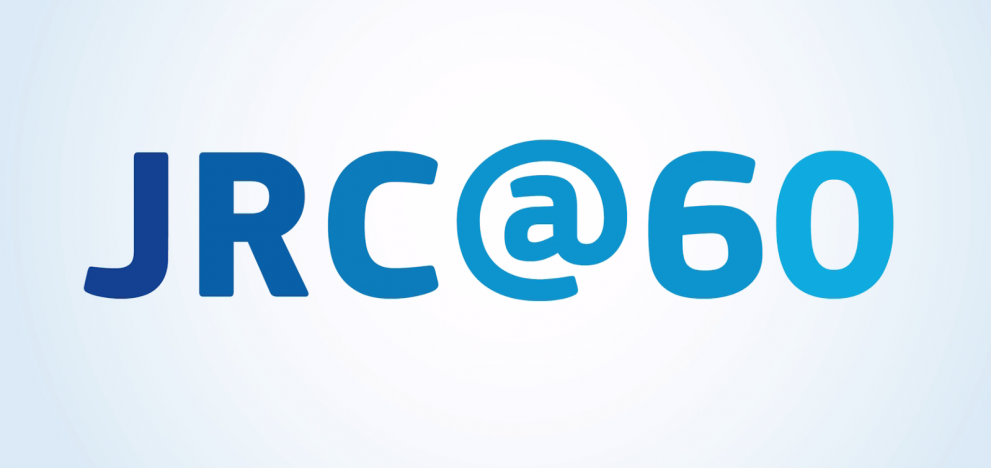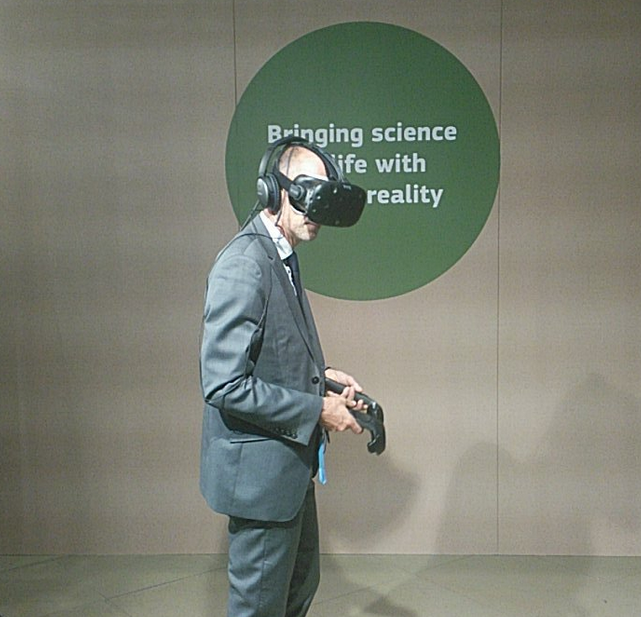
This week, the JRC convened an Extraordinary Meeting of the Board of Governors in Brussels. The meeting gave past and present JRC personalities the opportunity to take stock of their experiences and to take a fresh look at the future of the organisation. 60 years on from its establishment, attendees considered some of the main achievements of the JRC so far and explored how the organisation can best position itself to meet the challenges of the future.
At the meeting, 24 scientists whose work has helped lay the foundations for the many success stories of the JRC were awarded the title of Honorary JRC Fellow. Fellows included distinguished personalities like Jean Paul Malingreau, who developed the original concept that would later become the Copernicus earth observation programme; Horst Liesken, who established the JRC’s first Van de Graaff facility recently MONNET, Tandem accelerator based fast neutron source and Jean Meyer-Roux, who was project leader in the early days of the MARS crop yield forecasting system. All 24 scientists awarded have been instrumental in producing ground-breaking work that has helped the JRC to successfully establish itself as a science and knowledge service recognised for its excellence internationally.
Recognition of the JRC’s vital role as the European Commission’s science and knowledge service amongst EU policymakers was also evident on the day. As well as JRC veterans, the meeting was attended by senior figures in the European Commission, including the directors-general of both DG Energy and DG Grow.
The meeting was also an opportunity to look to the future and participants later joined a wider audience at the JRC’s annual lecture. This year, to coincide with the JRC’s annual conference ‘EU for facts: evidence for policy in a post-fact world’, the lecture explored the latest research on knowledge and ignorance. The event was moderated by Simon Kuper, Financial Times journalist and co-author of Soccernomics, which tells the story of science in successful sports strategy. Professor Steven Sloman of Brown University presented the lecture, entitled ‘Ignorance and the Community of Knowledge’. Ian Vollbracht, a researcher at the JRC and leader on the research project ‘big data, psycho-targeting and the future of democracy’ reflected on whether communication methods could be used to develop Professor Sloman’s ideas, and how organisations such as the Commission might re-think the focus of its communication activities.
Following the lecture, the audience was invited to an exhibition celebrating the JRC’s 60th anniversary and showcasing 6 decades of science and knowledge informing policies. After navigating a ‘maze of knowledge’ set up with walls built from the myriad reports and studies of the JRC, participants could find out more about the JRC’s work with interactive videos, displays and even a virtual reality program.

Background
The JRC’s history is as long as that of the EU - it is the only European Commission Directorate-General established directly by the Treaties of Rome in 1957.
In its early years, the JRC supported the development of the European nuclear sector. The JRC sites in Italy, Germany, Belgium and the Netherlands all trace their origins to nuclear activities.
Over time, the JRC’s mandate has expanded and it now provides contributions to key political priorities on things like fairness and the economy, energy union, nuclear security and safety, crisis management, innovation and health. As the JRC evolved, so did its approach to what it studied. In the beginning, technological research and development was the focus. Then it shifted to work on understanding, mastering and developing technologies for a range of uses, such as remote sensing or measuring of chemicals in the environment.
Three times a year, the JRC Board of Governors meets to discuss matters relating to the strategic role of the JRC and its scientific, technical and financial management. The Board consists of high-level representatives from the EU Member States and FP7 Associated Countries. They are nominated by the Commission upon designation of the country's authorities.
Established in 2015, the JRC’s annual lectures have presented the latest ideas on topics relevant to the EU. In 2015, JRC scientists gave a presentation on ‘transitions in global land and water resilience: the unique view from space’. Last year’s lecture explored ‘the science of fairness’.
Related Content
JRC’s annual lectures
Ignorance and the Community of Knowledge
Transitions in global land and water resilience: the unique view from space
Details
- Publication date
- 29 September 2017
